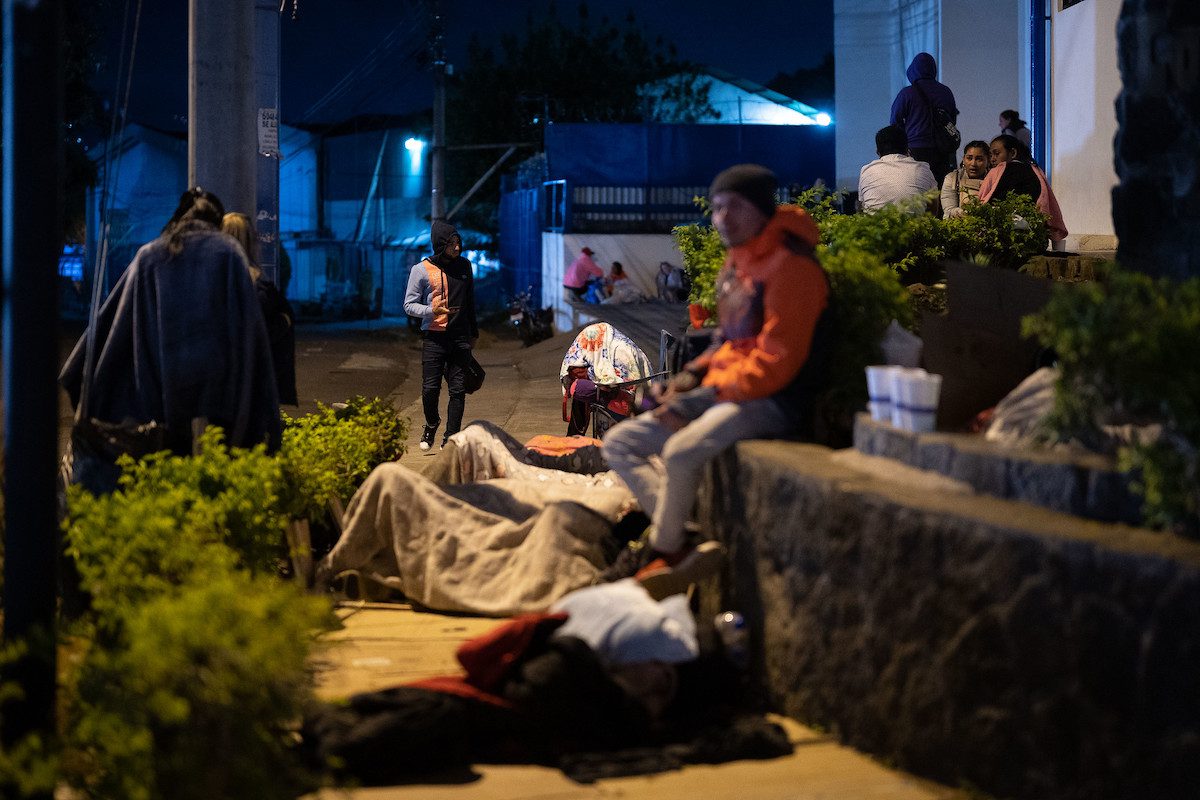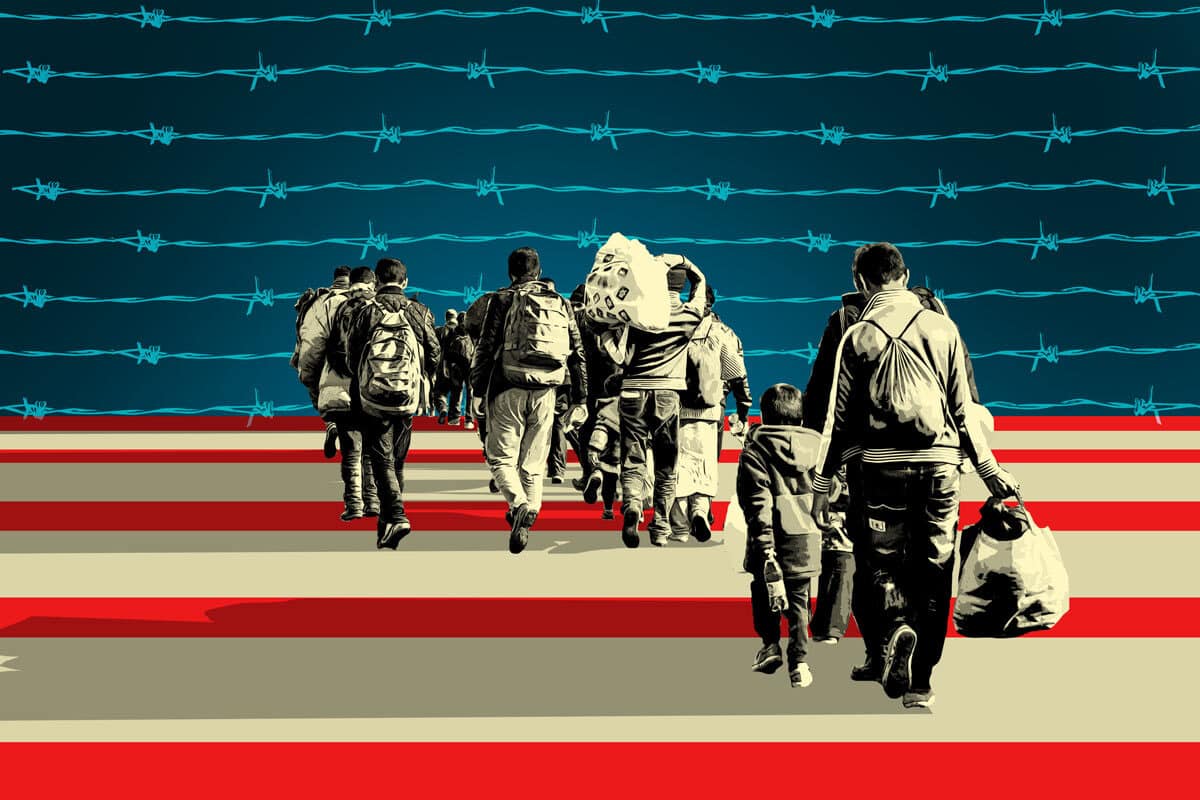Marianela’s suitcase is still waiting—just like her. It sits beside the bed, covered by a blanket that barely hides the only thing it carries: hope. Since November 2024, when she received notification that her case had been approved under the Safe Mobility program, she and her family began preparing for the journey.
After fleeing Nicaragua due to political persecution in May of the previous year, settling in Costa Rica had always been just a stopover. The final destination was the United States, where—she was told—they could arrive within a minimum of four months.
Safe Mobility was a U.S. initiative aimed at facilitating legal pathways for migrants in South and Central America. Since June 12, 2023, it had offered exiled Nicaraguans in Costa Rica the possibility to regularize their status and relocate legally and safely to the United States.
The initiative had the backing of the UN Refugee Agency (UNHCR) and the International Organization for Migration (IOM). However, it was suspended in January 2025, after President Donald Trump signed an executive order freezing the U.S. Refugee Admissions Program (USRAP) and its associated mechanisms, including Safe Mobility.
On January 20, 2025, Trump argued that the program “no longer served the national interest.” With a single stroke, the decision erased the hopes of Marianela and thousands like her to travel safely to the U.S. and start over.
The executive order repealed the humanitarian migration policy promoted by the Biden administration, which had expanded the U.S. Refugee Admissions Program. In addition, Trump ordered the suspension of new interviews, decisions, and refugee transfers, instructing the Department of Homeland Security and the State Department to assess whether the program should be restructured or eliminated.
Suspension Without Progress

The order established a 90-day deadline for submitting a report with recommendations—a deadline that passed on April 27, 2025. However, as of this June, no official information has been released about the program.
“The Secretary of Homeland Security, in consultation with the Secretary of State, shall submit new reports every 90 days thereafter until it is determined that resuming USRAP is in the interest of the United States,” reads the presidential decree.
In late May, Marianela wrote to the International Organization for Migration (IOM) seeking an update on her case. The response she received offered no encouragement—only confirmation that the process was stalled.
“According to the Executive Order issued by the President of the United States on the ‘Realignment of the United States Refugee Admissions Program,’ the Program’s activities have been suspended. We are unable to respond to your inquiries at this time. This includes both general questions and those related to specific cases. We sincerely apologize for this inconvenience,” read the email from IOM.
Since then, Marianela has lived between two nations she cannot truly inhabit: her homeland, which she cannot return to because of repression and persecution under the Ortega-Murillo regime, and another she cannot safely reach.
A Desperate Wait
Camila Gutiérrez, another 33-year-old Nicaraguan woman, went into exile with her family after facing political harassment in Nicaragua in August 2024. They saw the Safe Mobility program as the only legal and dignified path to rebuild their lives in the United States.
“We chose that path because we believed it offered the best chance to rebuild our lives with dignity and stability. The saddest part is that we sold our belongings in Nicaragua for next to nothing to prepare for the trip that never happened,” she says.
Gutiérrez made a different choice than Marianela—she decided to stop waiting. Her refugee application, submitted through the program, hadn’t been approved by the time the suspension came in January. The abrupt halt not only stopped her case but made it clear there would be no second chance.
“When I went into exile with my family, including my youngest son, we chose the program because we believed it was the best path to rebuild our lives with dignity and stability. But the process was slow and filled with uncertainty. And uncertainty hurts,” she shares.
Camila says the prolonged wait, the lack of roots, and emotional strain led them to make a decision for the sake of their mental health. “As a Christian family, we prayed for a clear answer, and when the notification about the program’s suspension came, we took it as a sign,” she says.
“Even if the country we’re in doesn’t offer the best conditions, we decided to settle here—for emotional stability and our son’s well-being. Because living in permanent waiting is also painful, and we chose to start building a new home,” she adds.
Court Rulings Fail to Unblock the Program

On February 25, 2025, federal judge Jamal Whitehead temporarily blocked Trump’s order, ruling that the suspension violated federal laws passed by Congress. A month later, the Ninth Circuit Court of Appeals allowed the government to halt new admissions but required it to honor already approved transfers.
Despite that intermediate ruling, government agencies have yet to resume the processing of the 128,000 refugees already approved to enter the United States—around 12,000 of whom had travel plans reserved before January 20, when Trump issued his order.
Organizations like HIAS, Church World Service, and Lutheran Community Services Northwest have filed lawsuits defending the refugees, arguing that the government has failed to comply with court rulings.
“The government has certainly been using stalling tactics so far, and the district court is having none of it,” said Mevlüde Akay Alp, part of the legal team at the International Refugee Assistance Project (IRAP), which is representing the case.
According to Akay Alp, the government itself has argued that the refugee admissions infrastructure has been “destroyed” due to defunding the organizations responsible for implementing the program—making it difficult to restart transfers, even when courts have authorized them.
Representatives of organizations like HIAS and Global Refuge say the U.S. government has opted for a delaying strategy that, while not explicitly illegal, has effectively placed the resettlement program in an indefinite pause.
“The program shutdown has been absolutely devastating for the refugees who had already been approved,” said Mark Hetfield, director of HIAS, one of the plaintiffs challenging the suspension.
“It’s incredible how people who have been unjustly deported from this country get so much attention, yet here we’re talking about 128,000 people—all of whom have faced life-threatening situations—who were promised rescue and resettlement by the U.S. government, only to have that offer taken away,” Hetfield criticized.
Costa Rica, an Expensive Place to Wait
Marianela was expecting to fly to the U.S. in February. But now it’s June, and reality keeps her in Alajuela, Costa Rica, where she pays $500 for a small apartment.
Her monthly food expenses range from $800 to $1,000—not including basic utilities—an unsustainable burden for a family surviving on income similar to what they earned in Nicaragua.
“We’re desperate for an answer. Costa Rica is extremely expensive, and we’re relying on our small savings to cover expenses. We’re spending more than we earn, and that goes against every economic principle,” she says.
The latest global ranking published by the international platform Numbeo in 2025 confirms that Costa Rica is now the most expensive country in Central America—surpassing even Chile and Uruguay.
According to the index, Costa Rica rose two spots from the previous year, solidifying its position among the most costly countries in Latin America. The high cost of food, rent, and transportation makes it difficult for refugees to remain—especially without formal access to the labor market.
“Life in the U.S. is also expensive, but at least there, income matches expenses, and there’s a chance to save. In Costa Rica, that’s impossible for Nicaraguans,” she laments.
A Critical Situation for Refugees Worldwide
In 2024, the United States resettled 69% of the world’s refugees. Now, it has left a void that neither the UN nor other nations have been able to fill.
By 2025, the UN Refugee Agency (UNHCR) estimates that 2.9 million people will need resettlement. Without U.S. participation, that number could trigger an unprecedented crisis, according to migration experts.
Meanwhile, the Trump administration continues to uphold the suspension without a clear justification and ignores court rulings that ordered the reactivation of previously approved transfers. In this scenario, thousands of exiled Nicaraguans like Marianela—and others from different nationalities—remain in a state of migratory limbo, their lives frozen while waiting for an answer that never comes.





